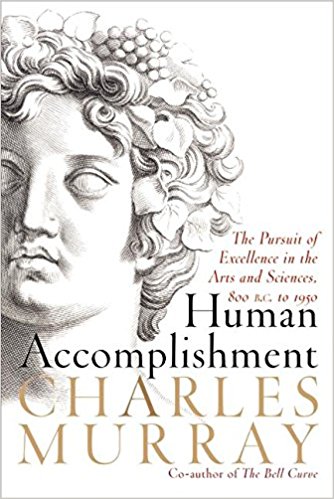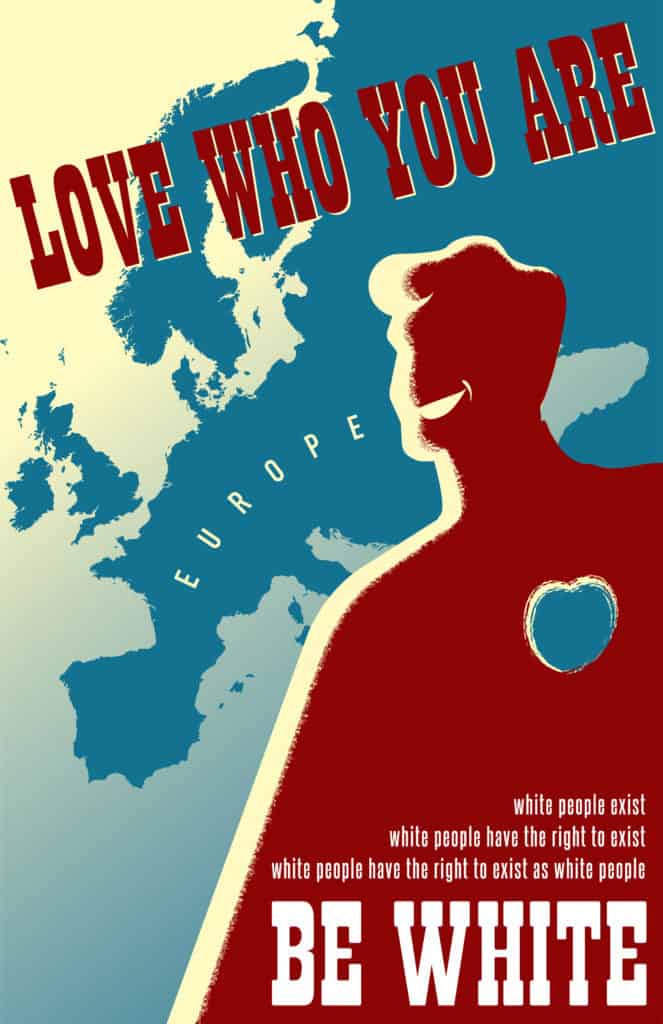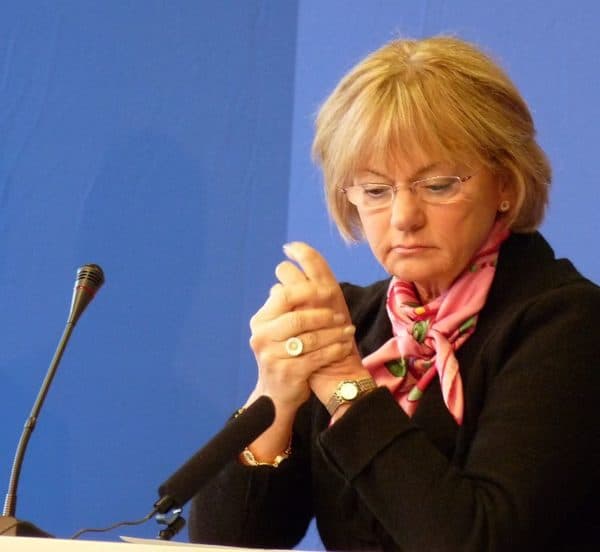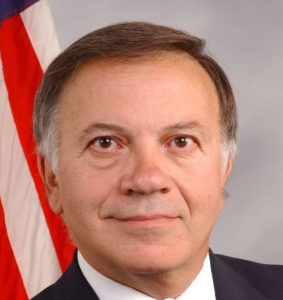Prospects for Our People: Jared Taylor’s Talk at the 2004 AmRen Conference
Jared Taylor, American Renaissance, February 2004

The Gen. Robert E. Lee in Richmond, Virginia. (Credit Image: © Chuck Myers / MCT / ZUMAPRESS.com)
Good morning. I thought I would speak today about prospects for our movement, because this is something people ask me about frequently. “What are our chances?” “Is there any hope?” Of course there is hope. In fact, for reasons, I’ll go into, I am more optimistic than I’ve been in some time.
But first of all, just what is our movement? What are we fighting for? I think the simplest way of putting it is that we just want to be left alone. We are the heirs to the magnificent culture and traditions of Europe, we are a biologically distinct group known as white people, we want to be left alone to carry forward our traditions and to pursue our own destiny. It is as simple as that. We wish other groups well, but we cannot welcome them in our midst because they are not us. We have a deep, healthy loyalty to our own kind, and we know populations are not replaceable or interchangeable. We have the right to be us, and only we can be us.
This is something everyone else takes it for granted whether they are Tibetans or New Guineans or Bantus or Maoris. In Brazil, when people occasionally stumble on Indian tribes that have never contacted the outside world they have a very clear policy: they leave them strictly alone and keep loggers and anthropologists out. Why? Because even stone-age tribes of 30 people have the right to be left alone.
We are the only people who are not supposed to want to preserve our way of life for our children. Only white people have no rights to pride in peoplehood. Our movement, of course, is to take back that right and to ensure for our descendents a continued existence as a distinct people with a glorious heritage and a promising destiny.
But before I tell you why I am optimistic about our prospects, let me give you an interesting perspective on our plight. You will recall last year when candidate for the Democratic nomination Howard Dean said his party should broaden its appeal even to include, as he put it: “guys with Confederate flags on their pick-up trucks.”

Credit Image: Patrick Feller / Flickr
Naturally, since Mr. Dean mentioned the Confederacy without being unremittingly hostile to it he was roasted from every quarter, but of all the foolishness said and written about his remarks, I was particularly struck by an essay by black author Shelby Steele in the Nov. 13 Wall Street Journal.
He wrote that Mr. Dean was “playing identity politics,” that he was “using identity to seek political power in precisely the same way that Rev. Al Sharpton does.” “For at least a minute,” he goes on to write, “Howard Dean tried to be a racial leader demagoging his Confederate-flag white people.”
What a stupid thing to say! Mr. Dean was not making a racial appeal. He was saying only that the Democratic Party needed to broaden its appeal beyond its core constituency of left-handed Lesbians and Hispanic nudists, and warmed-over Communists. That’s all he was saying. The party should have something to say to more ordinary Americans, including Americans with battle flags on their trucks. It was an entirely reasonable thing to say.
Of course, Mr. Steele, who is black, thought Mr. Dean was thinking racially because blacks think racially, and cannot get it through their heads that whites do not. Not even a smart black like Shelby Steele understands how utterly denatured white people are. What he wrote said nothing about Howard Dean and a lot about blacks.
But then Mr. Steele goes on to say something considerably less stupid:
It is quite acceptable for either party to explicitly go after the black, Hispanic, or even the Jewish vote. In fact both parties gain an indispensable moral authority by doing so.
But it is absolutely verboten for either party, or any white candidate, to appeal to whites as a racial identity group. Racial identity is simply forbidden to whites in America and across the entire Western world. Black children today are hammered with the idea of racial identity and pride, yet racial pride in whites constitutes a grave evil. Say “I’m white and I’m proud” and you are a Nazi . . . . Today’s whites, the world over, cannot openly have a racial identity.
What is interesting about this is that unlike most people, who pretend that racial identity is bad whoever has it, and that it is on the way out as we march towards the “colorblind” ideal, Mr. Steele is perfectly frank about the double standard. Racial pride is fine for blacks and everyone else, but verboten — his word — for whites.
Not just American whites, mind you, but all whites everywhere. Every one of us is guilty because, as Mr. Steele explains, of slavery, colonialism, and Nazism. So we do have a collective identity after all — a purely negative identity of guilt and self-hatred.
Now, before you start seething about the obvious unfairness of this, let’s recognize progress when we see it. Here it is in the nation’s largest-circulation paper: Everyone else can be proud of his race but us. Now, this came right at the time Charles Murray has been explaining in a best-selling book that just about everything significant ever done by human beings was done by white people. So I suspect that for at least a few readers, Mr. Steele may have provided just the ray of light they needed to see something they never saw before. A few people must have read that article and said to themselves, “Now wait a minute,” and started thinking for a change.

I have met Shelby Steele, and he struck me as a decent sort of fellow. He doesn’t hate white people the way a lot of blacks do. He’s married to a white person, and I suspect he doesn’t realize that what he has written is, in effect, a death sentence for us and our civilization.
No group can survive without group identity. This is a law of nature. Deny to whites their identity as a group and you condemn them to obliteration and oblivion. And that, of course, is precisely what we refuse! We are not going quietly.
And the reason that I am cautiously optimistic is that I see sure signs that more whites than ever before are refusing to be consigned to oblivion.
And by the way, Mr. Steele is right to talk about whites world-wide, not just American whites, because this is a world-wide struggle. All whites, whether they speak Norwegian or Romanian, whether they live in Europe or Africa, all whites are brothers in this struggle. That is why at this conference we have people from England, France, South Africa, Canada, Australia and from all over the United States. Ours is a world-wide community, and what happens in Italy or Switzerland or New Zealand is just as important to our race as what happens in Nevada.
Let me give you a little example of how this world-wide community works. AR has readers in many foreign countries. Its articles are mainly about what is happening in the United States, but our brothers in the entire white world share our struggles and challenges. Late last year, one of our readers in Sweden offered to write an article for AR about racial developments in Scandinavia — because, of course, their struggle is our struggle.
It was a good article — much appreciated by Americans, but not just by Americans. Large parts of it were reprinted in a magazine in South Africa. And a little later a French magazine translated parts of it and wrote a long, sympathetic commentary on it for French readers. And so you have an article about Scandinavia written by a Swede for an American audience picked up by magazines in other countries, too — because ours is a struggle that crosses all borders. We have comrades in every corner of the globe among every white population everywhere.
And, frankly, much of my optimism for our movement arises from the successes of our comrades fighting on other fronts. But not all of it.
There is some change in the United States, too. I have been talking frankly and publicly about racial matters for more than 12 years. When I first started, it was very heavy going. I would go on the radio, and every caller and every talk show host was hostile. Not any more. I can get on the radio and talk plainly about the clear, legitimate interests of whites, and half the callers may well agree with me 100 percent. Sure, I still get plenty of screamers and hypocrites, but it is a big change from 12 years ago.
More and more Americans are able to read the writing on the wall — partly because the letters get bigger and bigger every year.

There is a consciousness of race among white Americans that is just waiting for a legitimate way to express itself. I became aware of this some years ago, when I was doing a lot of radio work on the subject of race and crime. Whites are fascinated by racial statistics about crime. As soon you start quoting authoritative police statistics, they can’t get enough. On no other subject have I ever done a radio program in a city and then have competing stations in the same city call me up and say “Wow, that was a great program; can you come on our station?” Whites can talk about black and Hispanic crime with no apparent feelings of guilt at all. The challenge, of course, is to get them to talk about neighborhoods, about schools, about their country with the same confidence and clarity.
Likewise, I am pleased by the reaction to President Bush’s amnesty plan. Condemnation has been widespread. The public reasoning, of course, is that we must not reward people who jumped the cue and came here illegally, but I detect a consciousness of race that gives a real potency to this opposition to amnesty. Everyone knows it is amnesty for Mexicans, and in their bones American don’t want their country to turn into Mexico.
There are other signs of change. Like the telephone call I got from a fireman not long ago. His group was scheduled for sensitivity training. He had heard from other firemen what it was gong to be like, and he and his crew wanted to be ready for it. He had a surprisingly sophisticated knowledge about the history of slavery, of the mess Africa has made of itself since decolonization, and of different ways to measure IQ. He called to check up on a few points, and I was able to give him some useful pointers and references. But what particularly struck me was his attitude. He and several other firemen were determined to show the sensitivity instructor no mercy. I’ll never forget what he said: “We’re going to make her cry.”
I never heard back from that guy, but it is that kind of determination, that kind of understanding of what is at stake that is, I believe, growing unstoppably.
Just the day before yesterday I got a telephone call from a university professor. He has been an AR subscriber for years, and he was calling to tell me about a new spirit of toughness and determination among white students. He says he is seeing backbone and racial consciousness in white students like never before, was asking if we might be interested in an article about this. Well, of course. And here’s a sign of the times.
The problem, of course, is that we have no political voice. Our political system makes things very difficult for us—but not impossible. David Duke was elected to the state house in Louisiana despite overwhelming opposition from government and media. Frank Borzellieri made quite a splash on a New York school board for some time. Yesterday we heard from Perry Lorenz about his run for the school board. At the local level we do not face a monolithic party structure.

Frank Borzellieri with some of the books he wants school children to read.
I know very little about running for office, but that, I believe, is where we need to make better efforts. We have won the intellectual, moral, and historical arguments, but we rarely get the chance to make them publicly. What we need most is to get our hands on decision-making power. I believe understanding of race is steadily growing among whites an we must translate this into useful action.
And that, of course, is where our brothers and sisters overseas have been so much more successful than we. In just about every white country there is a nationalist political party that stands explicitly for national preservation — sometimes even for nothing less than ethnic or racial preservation — and gets votes because of this. And this is hugely important.
Most of the time, the American press simply ignores these parties, and screeches dutifully when it does not ignore them, but things are bubbling in Europe in a way that has no parallel here.
Here, in no particular order, are some developments in Europe that, taken together, add up to very important changes.
Switzerland
In Switzerland, the Swiss Peoples Party first swept onto the scene in the 2000 elections. Its campaigned for an end to liberal immigration and asylum laws, and its posters showed dark-skinned hands tearing up a Swiss flag. You can’t get much more explicit than that. The Peoples Party is now the number one party in the country. Its leader, Christoph Blocher (the media love to call him a “fervent nationalist,” so you know he is a fine fellow) was just elected to the 7-member Swiss cabinet. The cabinet is now talking about dismantling the Swiss Commission Against Racism. This is real progress.
Russia
Russian politics are not that much in the news here, but from our point of view they are very encouraging. The biggest party, United Russia, which is led by Vladimir Putin, is thoroughly nationalist by American standards, but it takes a back seat to the parties that are number two and number three. Vladimir Zhirinovsky’s Liberal Democratic Party is second in the Duma with 11% of the vote. Just this month Mr. Zhirinovsky was in the news for saying, “The white race is perishing. Every day there are fewer and fewer of us. We are half as many as we were 40 years ago. We must unite against the yellow peril and green menace.” (By green he means Muslims.) Pretty straightforward.
Zhirinovsky has a reputation as a clown, and there is so much nationalist sentiment in Russia that another party was set up just last September, called the Motherland Party, to put a more serious face on nationalism. It’s motto is “Russians Must Take Back Russia for Themselves,” and once again, you cannot get much more explicit than that. In the elections last December, it came in third the nation, and was first or second in some constituencies in Moscow and Petersberg.
So, with the top three political parties clearly nationalist, Russia is in solid hands.
Belgium
In Belgium, of course, there is the Vlaams Blok, which is particularly powerful in the Flemish-speaking part of the country, but gets 12 percent of the vote nationally and has 18 seats in the 150-seat parliament. In the United States, that would be like having 50 Congressmen. These are serious people who have a real effect on policy. Their slogan is “Our People First.”
Germany
Germany is of course cowed because of the Second World War, but more Germans are becoming uncowed. According to a recent poll almost two-thirds of Germans said they believed too many foreigners in Germany.
Austria
In Austria, what is most important is that Jörg Haider’s Freedom Party is still in the ruling coalition. As you will remember, the European Union threw a fit when the Freedom Party entered the government, but after a while all that died down. Europe has had to accept Austria, Freedom Party and all. Now, it is the people who wanted to boycott Austria who look foolish.
Denmark
Probably everyone here has heard of Pia Kjærsgaard, head of the Peoples Party of Denmark. She, too, gets right to the point. In her new year’s address, she said that a complete halt to immigration is “the only solution to prevent the country from turning into a ghetto like France, Germany or England.” She has also proposed that any foreigner convicted of a crime in Denmark be departed along with his family, his parents, and his grandparents.

Pia Kjærsgaard
Her party comrade Mogens Camre once noted that “there are 200 times as many Muslims in the world as Danes and we don’t want them living here and destroying our country as they have destroyed their own.”
This party also runs very explicit campaign posters. One showed a mass meeting of armed Islamic fundamentalists in the Middle East, with the text “The future of Denmark? Your country—your choice.” Another was a picture of a little blonde Danish girl, age four or five, with the text, “When she retires, there will be a Muslim majority in Denmark.”
The Peoples Party gets only about 12 percent of the vote, but its popularity has forced the ruling coalition to pass some of the best immigration-control laws in all of Europe. Now, most of the political parties are firmly on the side of good sense. In 2002, when Interior Minister Karen Jespersen suggested that any asylum seeker who committed a crime be sent to a desert island, a poll found that 75 percent of the population supported her. And, indeed, the Prime Minister, Poul Rasmussen, stoutly defended her sentiments. And these people aren’t even in the Peoples Party.
Then there is Tom Behnke, he’s not in Pia Kjærsgaard’s party either, who suggested in 1997 that the best way to handle Somali asylum seekers was to load them on a plane, fly them over Africa, and push them out in parachutes. One of his Copenhagen constituents got on the evening news and said, “don’t bother with the parachutes.” And his Copenhagen constituents keep sending him back to the Folketing or parliament.
Denmark now probably takes the firmest position on immigration of any European country. The country has put out the “no vacancy” sign, and any foreigner who breaks laws — whisht, gone. And it is important to note that Denmark never got the cold shoulder from the European Union that Austria got. That policy of righteous indignation is dead and buried.
Holland
In January, Holland issued an all-party parliamentary report saying that the Dutch attempt to create an integrated multi-ethnic society has failed. This is Holland, one of the most liberal, over-run countries in Europe. And it is acting on this policy, too. In February, the Dutch parliament voted to deport 26,000 phony asylum-seekers. Until now they had let phonies stay, but they are finally getting tough. This will be one of the biggest deportations in Europe since the expulsions of Germans after the war, and will mean removal of one in every 600 people from the country. Needless to say, the public is delighted.

And there are other developments in Holland. The city of Rotterdam, for example, which has more immigrants than any other Dutch city has finally had enough. The city council just decided it won’t issue a residence permit to anyone who doesn’t speak Dutch and who does not have a job with an income at least 20% more than minimum wage. The council will no longer approve cheap housing but will grant building permits only for expensive houses.
A spokesman for the City Council says this: “We want people to work and we want people to learn Dutch. We want Rotterdam to look like any other Dutch city but at the moment we have more unemployed people and crime than anywhere else.”
He says the city is tired of immigrants “of the wrong sort.”
It is a significant departure for the Dutch to admit that there can be immigrants “of the wrong sort,” and let us hope this is a sign of thing to come.
Britain
In Britain, the British National Party has 16 elected councilors. These are like city councilors, and have only local influence, but this is a start.
I won’t go into details but in Serbia and Italy, there are firmly nationalist parties sharing power, and in Portugal a nationalist part has a strong and increasingly influential presence.
Virtuous Cycles
Now, what is interesting here is the power of political minorities. A party that is firmly in favor of immigration-control usually has to win no more than 10 or 15 percent of the vote in order to have a dramatic effect on immigration policy. Their policies are supported by so many people that other parties have to steal their clothes just to save their skins.
This has happened over and over. Once nationalists have a political voice, it becomes impossible to ignore them.
The other interesting example of the power of the minority is that as soon as one or two European countries start tightening their policies, it has a cascading effect on other countries. Denmark, for example, is now basically closed to immigration. What is the effect of this? It puts more immigration pressure on Sweden, which still suffers from suicidal delusions about the interchangeability of populations. However, after much squawking about the Danes, the Swedes have now sharply curtailed their intake of refugees and asylum-seekers. They’ve got to face the music.
With the clampdown in Holland I just mentioned, there is a scramble of illegals to get into Britain, which has the reputation of being a soft touch. And this, of course, has provoked sharp cries within Britain to keep them out. Let us hope those cries are heeded.
What we are seeing in Europe, therefore, is I believe the beginning of what could become a virtuous cycle. A few countries take sensible steps. The run-off of unwanted immigrants then moves to the countries with the stupider policies, who then have to implement less stupid policies to keep things in balance. And so on, with the result that gradually all countries end up with reasonably intelligent policies. Anyone who is left out will be swamped with the world’s riff raff and have to tighten up.
This is the opposite of Gresham’s law — good policy chases out bad. That, at least, is the direction Europe is now moving. It is encouraged in this, of course, by the fact that those countries with fewer non-white immigrants have less crime, fewer social problems, etc. It doesn’t take long before the benefits of restrictions — and the folly of lax admissions — become clear for all to see.
Rotterdam is another good example of comparative experience. The Dutch city with the most foreigners, has finally recognized the crazy mistake it has made, and wants, in the words of a city council spokesman, “to look like any other Dutch city.”
Europeans travel a lot within Europe, and they see dark-skinned bums sleeping on the streets on Rotterdam. In Denmark they don’t see dark-skinned bums sleeping on the streets, and they are not so stupid as to be unable to understand that immigration has something to do with this.
The US, unfortunately, does not benefit from either of these processes — the power of minority parties or the intelligent policies of neighbors. Like Britain, our political system makes it very difficult for small parties to get representation. If we had a proportional representation system, in which Congress represented national opinion rather than winner-take-all Congressional districts, we would have a very different political picture.
Could an immigration-control party, even one that advocated explicit racial consciousness, get 10 percent of the national vote in the United States? Sure it could. And if, as is the case of many European countries, that translated into 10 percent of Congress, what a tremendous difference it would make. Imagine 45 outspoken Tom Tancredos instead of just one! In a system that really represented political opinion rather than maintain the stranglehold of just two parties, our situation would be unrecognizably different.

Tom Tancredo
However, both we and the Brits have to work with the system we have. We are not suddenly going to get proportional representation.
Nor do Americans have the benefit of a sudden comparison with the results of intelligent policies practiced by neighbors. If anything, Canada is even more stupid about these things than we are.
So, once again, why are the Europeans making better progress than we are? It is not because their media are more sensible — they are just as bad — or because their populations think differently from ours. In some cases, I think their activists have been more effective and energetic than ours. But I think it is mainly because they have more democratic systems that better reflect what ordinary voters really think. And they have the clear example of countries that may be just an hour’s drive away.
So, I have reasons to be optimistic about the United States, but I am especially encouraged by events in Europe.
Now, what about pressure the United States can put on Europeans to make sure their immigration policies stay stupid? I think probably less than at any time in the last 50 years. For all sorts of reasons, the war in Iraq being one of them, there is a distinctly anti-American feeling in Europe. When it comes to immigration, Europeans will thumb their noses at us, and God bless them.
And eventually, they may have the same effect-by-example on us that the more intelligently-run countries in Europe are having on the ones that are stupidly run. The contrast between a sane, healthy, white Europe and a confused, polyglot, Third-World United States will become simply too great to ignore.
And so, to return to the question with which I began: What are our prospects? In a global context, we are making progress. Great damage has already been done, even in our ancient European heartland, but our cousins across the Atlantic are showing very heartening signs of sanity.
However, to the question “what are our chances?” the real answer is “It doesn’t matter.” As all of you realize, our duty and our choice of action are unaffected by our prospects, whether they are bright or dim. The chance of success in no way changes the nature of our obligation to our ancestors and to our children.
If I start talking about this at any length about this I am likely to lose my composure, so I will say only this:
That as men of the West, our duty is clear. It is clear whether eventually we fail or succeed. This is not a game in which we place our bets according to how we calculate the odds. The odds don’t affect our commitment at all. Our cause is the central challenge of our age, the number one responsibility of our generation. Win or lose, we devote ourselves to this struggle and we do so gladly. Gladly because we know we are right. We have on our side every law of nature and morality. History, biology, human nature, and the accumulated wisdom of our ancestors all clearly show us the path we must take.
Before the Battle of Trafalgar — in one of those terrible fratricidal wars we hope never to fight again — Nelson sent a message to the fleet: “England expects every man to do his duty.” Duty, ladies and gentlemen, is the message we read in all the great works of our civilization. Duty is the message we read in the portraits of our grandparents and in the faces of our sons and daughters. And if we not only read that message but act upon it, we will assure for our descendents the future they deserve, a future to match their inspiring past.















